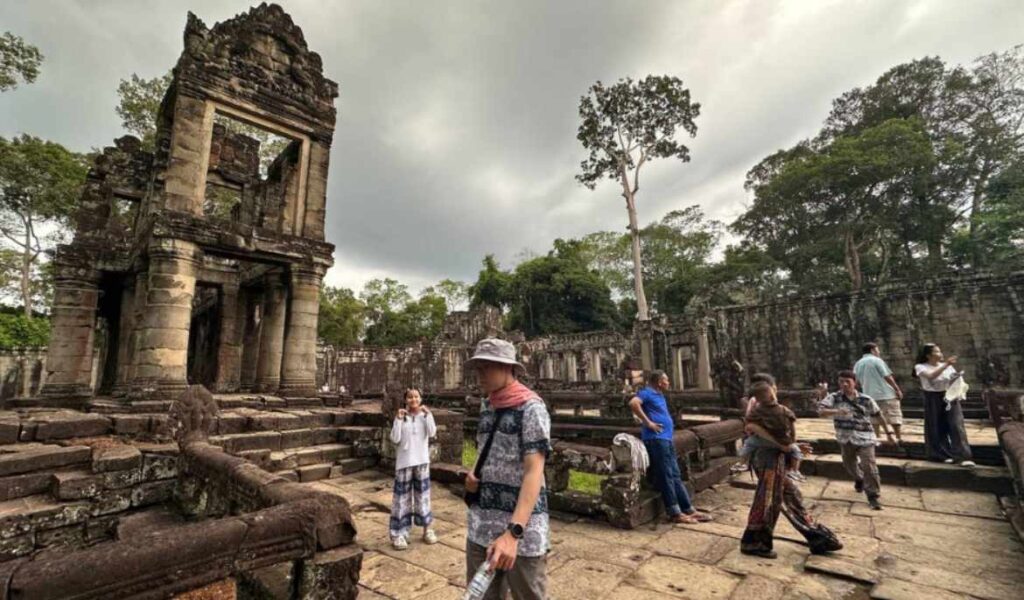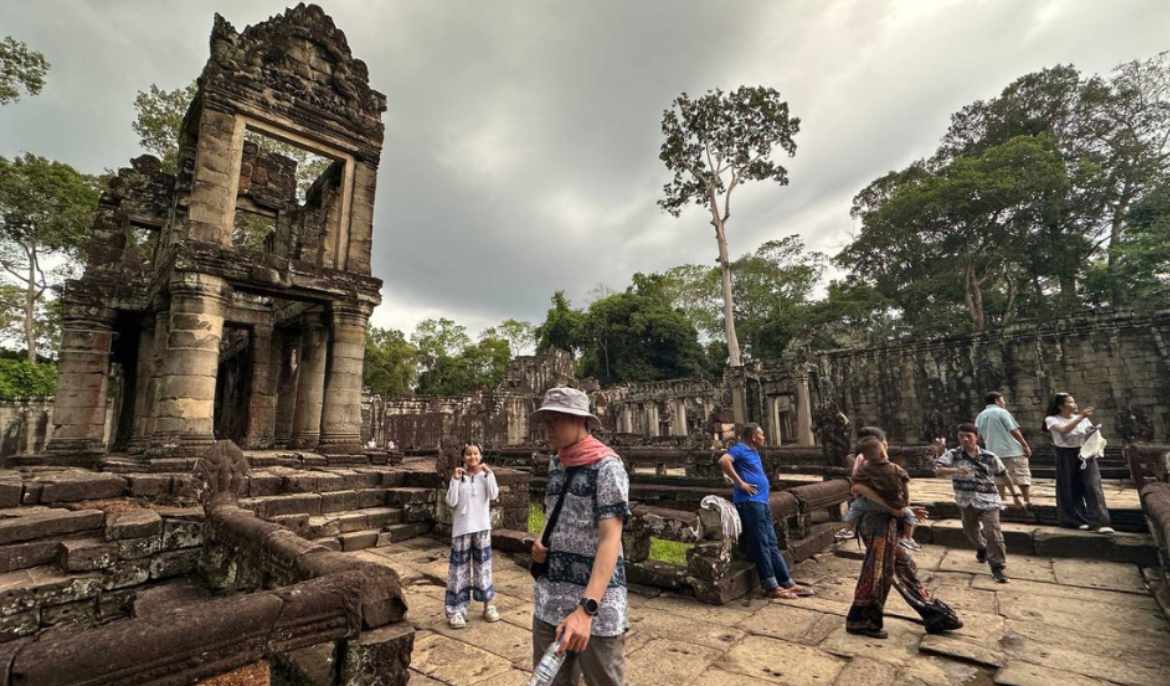The Angkor Enterprise (AE) earned over $26 million from ticket sales to international tourists visiting the Angkor Archaeological Park in the first half of 2025, an increase of nearly 10% compared to the same period last year. Tourism experts have claimed that the recent closure of the Cambodia-Thailand border is unlikely to impact AE ticket sales.
The enterprise, a public administrative body, was established in 2016. It operates under the technical supervision of the Ministry of Tourism and the financial supervision of the Ministry of Economy and Finance.
Ticket prices for the park are $37 per person for one day, $62 for three days or $72 for seven days.
A July 1 AE press release stated that from January to June, 567,673 international tourists purchased tickets to visit the Angkor Archaeological Park — an 8.76% increase compared to the same period in 2024. AE collected a total of $26.31 million, up 8.04% year-on-year.
In addition to Angkor Park ticket sales, AE also generated revenue from four other sites: Koh Ker Temple earned $181,140, Beng Mealea Temple $81,990, Phnom Kbal Spean $3,220 and Chong Kneas Port $1,216,716.
Khiev Thy, president of the Angkor Tour Guide Association, told The Post on July 1 that although Ministry of Tourism data shows most recent international arrivals to Cambodia are from Thailand, Thai nationals do not make up the majority of ticket purchasers at Angkor and other major tourist destinations.
He explained that most international visitors to the temples in Siem Reap are from the US, Europe, Canada, Japan, South Korea and China, among others.
“Even though AE’s revenue increased only slightly in the first half of this year, it is still a positive sign after the near-total collapse of tourism during the Covid-19 pandemic. We are optimistic that in the upcoming high season, Cambodia will see many more international tourists,” he said.
In the record-breaking pre-Covid-19 tourist season of 2018, January to June sales at Angkor totalled 1,356,961, earning $61.47 million.
He urged the Cambodian government and private sector to further step up international promotional efforts to raise awareness of the country’s tourism potential in global markets.
The tourism ministry reported that in the first five months of the year, the Kingdom welcomed 2.95 million international guests, an 11.7% increase compared to the same period in 2024.



